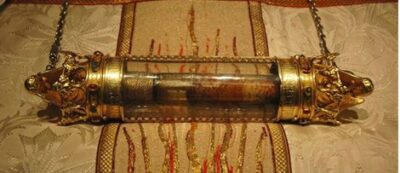December 3-5, 2025
Louvain-la-Neuve
The subject of the Blood of Christ has fueled Christian devotional culture in Europe since the mid-Middle Ages. Rooted in the veneration of relics, it quickly became central with the progressive establishment of the dogma of transubstantiation, particularly at the Fourth Lateran Council (1215), and the development of a liturgy specifically celebrating the Corpus Christi: the Feast of Corpus Christi, universally promoted within Christendom by the papal bull Transiturus (1264).
This interdisciplinary conference aims to explore how devotion to the Holy Blood, in its various forms and manifestations (relics, sacraments, miracles), shaped and nourished the emergence of a visual culture in Europe from the Middle Ages to the 18th century.
Through the lens of visuality—whether visible and/or visionary—this colloquium will examine the theological debates, the development and evolution of a devotional culture, including its social and political dimensions, and their impact on modes of representation in iconography. By visual/visionary culture, we aim to investigate what is rendered visible of the Blood of Christ and to explore the tension between what miracles make perceptible to the senses and what remains beyond perception, opening the faithful to a spiritual and sacred dimension and inspiring new modes of rendering the divine visible.
This interdisciplinary conference explores how devotion to the Holy Blood, through its various forms and manifestations (relics, sacrament, miracles), shaped a visual and visionary culture in Europe from the Middle Ages to the 18th century. It focuses on the interactions between theology, devotional culture, social and political dynamics, and modes of iconographic representation.Contributions may align with one of the following three axes: doctrinal foundations and eucharistic liturgies; visual culture and social history; object-images and visual devices. Proposals (maximum 500 words) accompanied by a CV should be sent by April 15, 2025, to manon.chaidron@uclouvain.be and mathilde.mares@gmail.com.
A full call for papers can be downloaded here.
